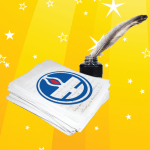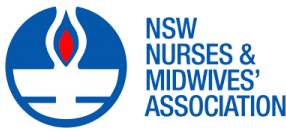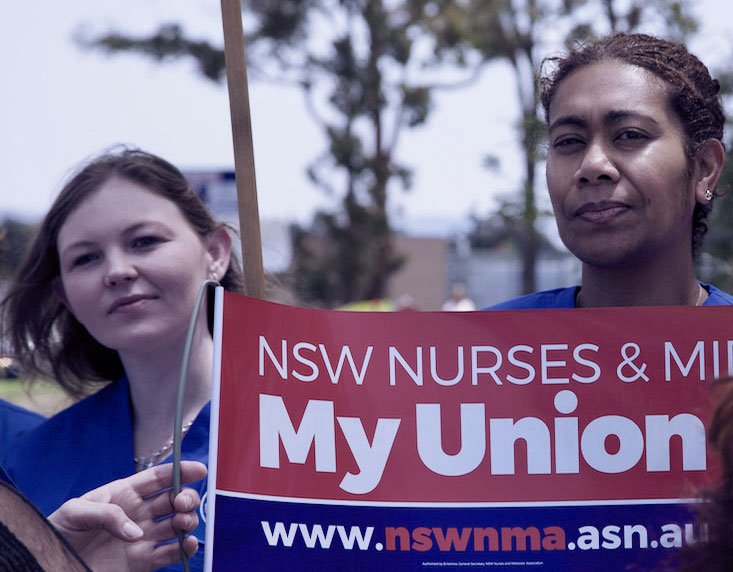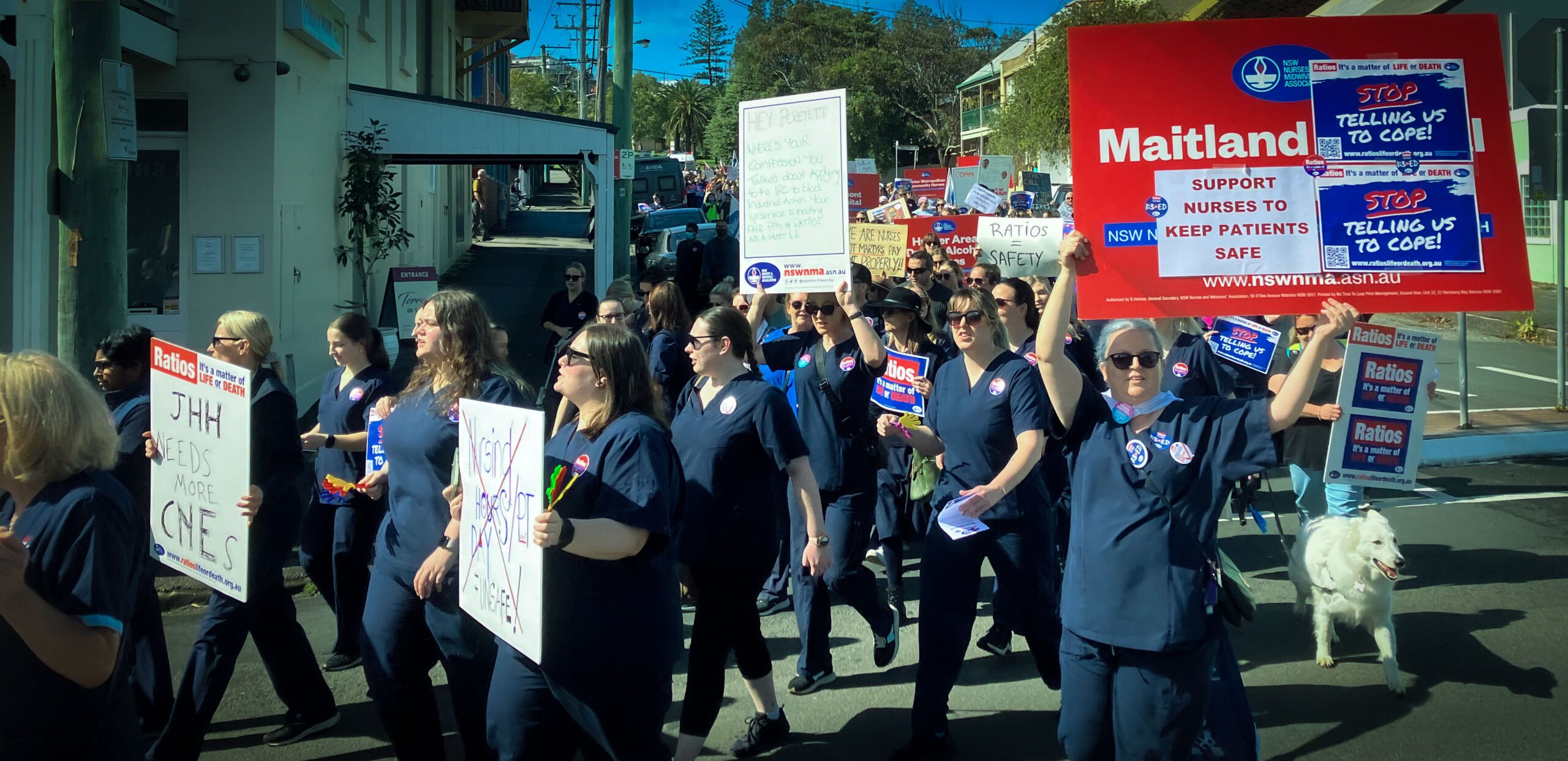 The only time I saw my Dad cry was the day I started nursing. He dropped me off at
The only time I saw my Dad cry was the day I started nursing. He dropped me off at
Prince of Wales nurses’ home and drove off in tears. I stood alone wishing I could run after him. Back to my south coast home. I was a shy 18 year old and knew no-one in Sydney. My romanticized view of nursing was gained mainly from TV shows. Pretty nurses floating around in uniforms, rescuing and comforting the sick. Being terribly efficient, kind and sweet.
What an amazing adventure it has been over the past 40 years. What an incredible privilege it has been to listen to the stories and share in the journeys of so many families I’ve met along the way. I’m immensely grateful for the opportunities I’ve had to learn and reflect – hospital based training at Prince Henry and Prince of Wales, Paediatrics course, Post Grad degree at uni, research, conferences and training. However it is the remarkable patients and their families that have, not only pulled at my heartstrings, but taught me so much about sacrifice, courage, bravery, dedication, loyalty and love.
Following are just a few families I’ll never forget. My only advice to young nurses. Listen to your patients and their families. We have so much to learn from them. Listen and we might sometimes hear their dreams and just maybe we can help them achieve those dreams with improved preventative health care, facilitating better access to top specialists and top quality nursing care.
1970s
GEORGIE
Georgie and I first met at Sydney Children’s Hospital in the late 70s. Georgie had cystic fibrosis and those kids rarely made it to their teens. Those were the days before lung and liver transplants. I will never forget that cheeky smile, her humour, her strength and her courage. She became my shadow and we got to know each other well as Georgie was admitted with monotonous regularity. Children with cystic fibrosis broke our hearts but their parents packed so much into their short lives.
Unless you have nursed kids with cystic fibrosis you can have no understanding of the gruelling regime that families go through every day. I, myself, developed really strong arm muscles from the constant chest percussion rounds and went home exhausted most days. How I admired those families that soldiered on through a strict routine every day that revolved around nebulizers, chest percussion, antibiotics, enzymes and a battery of medications with frequent tests, medical reviews and hospitalisations in the mix. Some families had two kids with CF. I don’t know how they did it.
Some of our patient’s lives will be short but what a difference we can make to brighten the lives of those children. For those exhausted and frequently frightened parents – providing a listening ear, truly understanding how tough every day can be, giving them a break and sharing the load are amongst the greatest gifts we can give. Georgie died at 10 years of age
1980s
SAM
Sam was one of those tiny 24 weekers in Baxter Neonatal Ward, Camperdown Children’s Hospital in the early 80s. A little fighter with a distinct personality even at just 24 weeks gestation. The lights, the prodding, the poking, suctioning, changing tubes and bags, turning and the intermittent jabs. The hourly round of observations, that took almost the whole hour, and when finished we started all over again. Those courageous little souls and their brave parents who sat day and night praying and willing their little ones on to survive.
When we sat exhausted, taking a well needed break in the tea-room, we gazed at plastic covered photos of gorgeous children playing, laughing and smiling at the annual Baxter party. The survivors. The aim was to encourage, the nurses that worked with these little ones, that it was all worth it. To know that these other premmies would not have made it without fastidious neonatal nursing care. Sam would be in his thirties now. I wonder what Sam is doing with that precious life he once clung to so tenaciously. He may now have children of his own.
How incredible to have played a small part in Sam’s survival.
1990s
LILY
When I first met Lily she was a young girl with diagnosis including severe cerebral palsy, spastic quadriplegia and a severe intellectual disability. Although, I have often wondered. How do you really test the IQ of someone who can not move at all and can not speak? Lily could not speak, but she surely could communicate with the hugest of smiles. Dimples would ripple across her cheeks. One golden day Lily met her new foster mum, Jan, and it was love at first sight.
Years later Lily and her foster family came back into my life. Lily was now in her late teens but still so very tiny although she’d been tube fed for years. As soon as we met again I was rewarded with that huge smile and sounds of glee. Jan assured me that Lily remembered me. I was at the time working in the community.
Lily was increasingly having problems. Jan tried oral feeds for years but Lily’s weight did not increase by much. Eventually the decision was made to place a gastrostomy. Lily grew in length, with the tube feeds, which resulted in new issues. When I met Lily again her scoliosis had worsened so much, with her growth, that her organs were displaced and she was not gaining any more weight. Her “button” was also now leaking copiously as her stomach had moved further from the stoma site. Lily appeared to be in pain but still tried to smile. Occasionally we now heard her cry. She was such a brave soul.
Lily was now over sixteen. She had entered the wilderness, that young people with complex medical issues and disability often find themselves in, when they leave the paediatric world. GPs had tried to discuss end of life decision making with Jan but she would have none of it and “sacked” a few before I came on the scene. We did, however, find a wonderful adult rehab physician who specialized in working with people with an intellectual disability. I booked Lily in and facilitated the review.
The rehabilitation specialist examined Lily and explained that her organs were so displaced and the scoliosis so bad that Lily must be in excruciating pain. She insisted we needed to consider Palliative care and end of life planning. For a moment I thought Jan was going to march right out of there. She was extremely unhappy. Afterwards we sat and talked and I listened and listened and listened as she worked her way through her anger and grief and finally agreed to a consult with the Palliative Care specialist.
The support and pain management that the Palliative Care team were able to offer meant a whole new quality of life for Lily’s final months. A highlight was a wonderful family holiday together while Lily was still well enough. Lily was cared for at home, by her foster mum, until her final days when she entered Palliative Care.
This foster mother was pure gold. Lily’s care was 24/7 and she was as devoted as anyone I have ever seen. The privilege it was to work with beautiful Lily but also to know Jan and her absolute commitment and dedication to this young woman is something I will not forget. Sometimes our role is to listen, support, listen, facilitate reviews with the appropriate health professionals and listen.
2000s
CAM
Sitting on the steps of a regional hospital, listening and comforting Sally as her son was whisked away by helicopter to Sydney, is an enduring memory. Working in the community means you often see the whole picture much clearer than the snapshot I saw when I worked as an RN in the wards. Sally had not wanted her son to be resuscitated yet again. He was already under the local Palliative Care team.
Cam was a big cheeky boy, a delight, who worked his way into my heart despite his challenging and obsessive behaviours. His medical conditions filled a page including benign brain tumours and surgery, as an infant, which had resulted in holoprosacephaly, diabetes insipidus, adrenal insufficiency and daily excruciatingly painful migraines. He also had a moderate intellectual disability. A tumour was now impacting on his optic nerve meaning he also was progressively going blind. He hardly ever slept and ate continuously. Cam’s obsessive behaviours meant he collected mountains of stuff. He’d recently had the holiday of a lifetime with Camp Quality. His family were devoted to him but struggled with the endless sleepless nights, the never ending cycle of medical reviews, tests and hospitalisations.
This time Cam had developed a temperature overnight and had gone into adrenal crisis. He was unconscious again. Sally had not realized that Cam was unwell until morning. He had not received the PRN Hydrocortisone in time. Sally blamed herself and felt the doctors blamed her as well. To make matters worse she was terrified of flying so Cam’s Dad accompanied him and Mum was to go by car.
Cam hated hospitals. This was not surprising as his health issues meant he was a regular and often in ICU. I visited and things looked grim and weeks went by and he had still not regained consciousness. Family reported that there was some talk of him being “brain dead”.
Sally did not want Cam to die in hospital. He hated hospitals so now her great fear was that he would die in ICU. She asked the Case Manager and myself if we could help. A Case Conference was set up and a room dauntingly full of Cam’s specialists awaited us. No one looked particularly friendly. I will always remember one specialist saying “But we have sorted his endocrine system”. We all looked at him blankly and it reminded me how the boy in the middle can be forgotten when we have a multitude of specialists looking at each system. We supported Sally as finally she asked if Cam could die at home, with his family, instead of in ICU. They listened and a small miracle occurred. Everyone worked together – ICU staff, specialists, local Palliative Care, ambulance services and local Disability services.
A few days later Cam was transported to his home on life support and accompanied by a CNC in the ambulance. Local Palliative Care staff, the Case Manager and myself arrived as Cam was extubated. Cam lived well into the night. His bed in the lounge room, surrounded by his family in a bed full of his toys. I’ll never forget Cam and that cheeky grin.
2010s – today
PETE
Running country outreach clinics is such a joy
The final patient is a bit more than a boy
We make way for his electric wheels
I can’t help wondering how Pete feels.
Pete can’t walk, can’t talk and dribbles quite a lot
But if you just look at that you don’t see what he’s got
That twinkle in his eye, that cheeky smile
He’d won us over by a country mile.
His Mum, Dad and speechie are here
It’s obvious they hold him dear
Tired city specialists at the end of a long day
Pete can’t talk but we all say G’day.
A new untried voice output device
We all try a response to entice
But sadly it lies idly on its stalk on display
His speechie looks on in dismay.
The consult began and we tried to include Pete
Discussions on swallow and what he could eat
Saliva management, dysphagia, risks of a choke
Spasms, contractures, extensions. He’s a tough young bloke.
“So what does Pete want to do with his life?”
Go bowling? Go shopping? Get a wife?
No…To travel to Turkey is just one of his dreams
This young man is certainly not what he seems.
Pete has been reading history with his Dad
For many years, so much more than a fad
To do History studies, at uni, is his plan
I really hope it works out for this young man.
The specialist said he loved history too
We waited to see what Pete would do
As he suddenly reached for that device and hit some keys
It was difficult, it was tough, it was not with ease.
We waited in anticipation until he was done
Everyone, in that room, willing him on
But sadly it made no sense
Pete looked around and looked intense.
1-7-7-6. What was that about?
We eventually worked it out
Ah ha. A history challenge was on
The year “The Declaration of Independence” was done.
The joy, the delight on Pete’s face
The doc and him in a bit of a race
Next year’s challenge – The Crimean War
This is what nursing is really for.
To help our patients reach their dreams
I really do love my job!!
RURAL AND REMOTE MENTAL HEALTH CLINICS
I also have the absolute privilege of facilitating Rural and Remote Mental Health clinics for young people with a dual diagnosis – an intellectual disability and mental illness/challenging behaviours. What astounds me every time is that chaos does not ensue. About 14 young people and their “teams” (families, support staff, psychologists, behaviour support, case managers, school counsellors) are booked in. These young people, and their families, generally live extraordinarily difficult lives. They travel in from far and wide – Bega, Eden, the Snowy Mountains, Batemans Bay and Queanbeyan and almost always everyone arrives on time. Rarely is there a “no show” and people sit patiently waiting for any help available.
Psychiatrists, dedicated to working with young people with an intellectual disability, travel in from Sydney along with a registrar or two. Case Managers, Behaviour Support and Psychologists work hard to assist families to put together the necessary intake information, referrals, consents and reports.
However the stars of the day are the young people themselves and their families. The commitment of those families, the love we so often see displayed and the lack of self pity is remarkable. If you, or a member of our family, have an intellectual disability and challenging behaviours it is frequently so difficult to engage and participate in the community without the right support. These families often become so isolated.
What a privilege it has been to listen to the stories and work as part of a team and hopefully make life a little easier for these remarkable families.
TODAY
If I had my time again would I do nursing again? It’s tough, it’s heart breaking it’s sometimes pretty grubby, I’ve often gone home in tears but yes I would do start all over again if I could. Those wonderful patients and families have taught me so much over the years about courage, bravery, gratitude and appreciating every good day.







